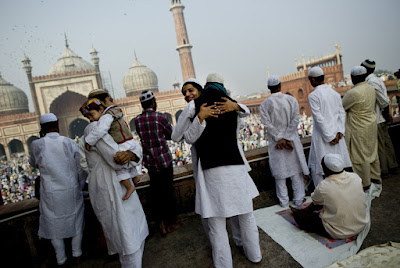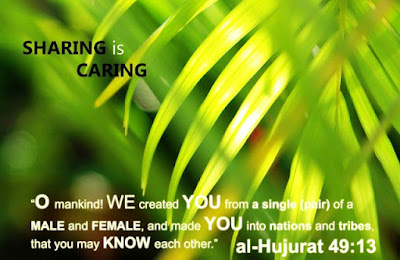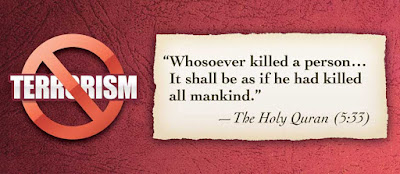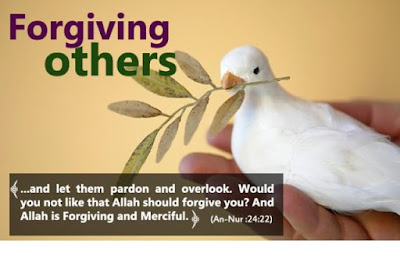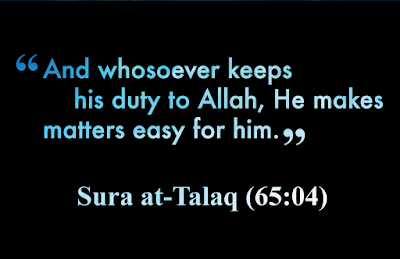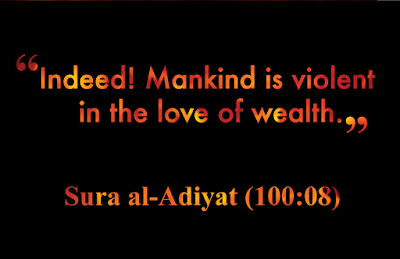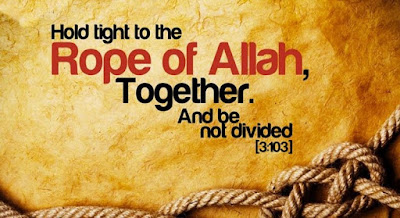The word Quran literally means “to read” and the most readable book through-out in the world is the Holy Quran . The Holy Qur’an – The Book of Guidance
Allah Almighty revealed the Quran through angel Jibrael Amin (Alihis salam) to the last prophet Muhammad (peace be upon him) in the cave of Hira on Liala tul Qadr (the night of power) and Allah himself took the responsibility to keep the Holy Quran Safe and sound for the mankind till the Day of Judgment.
Allah Almighty revealed the Quran through angel Jibrael Amin (Alihis salam) to the last prophet Muhammad (peace be upon him) in the cave of Hira on Liala tul Qadr (the night of power) and Allah himself took the responsibility to keep the Holy Quran Safe and sound for the mankind till the Day of Judgment.
Information About Qur’an:
Q) Where was the Qur”an revealed first?
A) In the cave of Hira (Makkah)
A) In the cave of Hira (Makkah)
Q) On which night was the Qur”an first revealed?
A) Lailatul-Qadr (Night of the Power)
A) Lailatul-Qadr (Night of the Power)
Q) Through whom was the Qur”an revealed?
A) Through Angel Jibraeel (Alaihis-Salaam)
A) Through Angel Jibraeel (Alaihis-Salaam)
Q) To whom was the Qur”an revealed?
A) To the last Prophet Muhammed (Sallahu Alaihi Wasallam)
A) To the last Prophet Muhammed (Sallahu Alaihi Wasallam)
Q) Who took the responsibility of keeping the Qur”an safe?
A) Allah himself
A) Allah himself
Q) What are the conditions for holding or touching the Qur”an?
A) One has to be clean and to be with wudhu (ablution)
A) One has to be clean and to be with wudhu (ablution)
Q) What is the topic of the Qur”an?
A) Man
A) Man
Q) What are the other names of the Qur”an according to the Qur”an itself?
A) Al-Furqaan, Al-Kitaab, Al-Zikr, Al-Noor, Al-Huda
A) Al-Furqaan, Al-Kitaab, Al-Zikr, Al-Noor, Al-Huda
Q) How many Makki Surahs (chapters) are there in the Qur”an?
A) 86
A) 86
Q) How many Madani Surahs (chapters) are there in the Qur”an?
A) 28
A) 28
Q) How many Manzils (stages) are there in the Qur”an?
A)7
A)7
Q) How many Paara or Juz (parts) are there in the Qur”an?
A) 30
A) 30
Q) How many Surahs (chapters) are there in the Qur”an?
A) 114
A) 114
Q) How many Rukoo (paragraphs) are there in the Qur”an?
A) 540
A) 540
Q) How many Aayaath (verses) are there in the Qur”an?
A) 6666
A) 6666
Q) How many times is the word ”Allah” repeated in the Qur”an?
A) 2698
A) 2698
Q) How many different types of Aayaath (verses) are there in the Qur”an?
A) 10
A) 10
Q) At the time of the death of Prophet Muhammed (Sallallahu Alaihi Wasallam) how many Huffaz were there?
A) 22
A) 22
Q) How many Aayaaths (verses) on Sajda (prostation) are there in the Qur”an?
A) 14
A) 14
Q) In which Paara (part) and Surah (chapter) do you find the first verse about Sajda (prostation)?
A) The 9th Paara, 7th Chapter-Surah-al-Araaf, Verse206
A) The 9th Paara, 7th Chapter-Surah-al-Araaf, Verse206
Q) How many times has the Qur”an stressed about Salaat or Namaaz (prayer)?
A) 700 times
A) 700 times
Q) How many times has the Qur”an emphasized on alms or charity?
A) 150
A) 150
Q) How many times in the Qur”an, is the Prophet Muhammed (Sallallahu Alaihi Wasallam) addressed as Yaa-Aiyu-Han-Nabi?
A)11 times
A)11 times
Q) Where in the Qur”an has Prophet Muhammed (Sallallahu Alaihi Wasallam) been named ”Ahmed”?
A)Paara 28, Surah Saff, Ayath 6
A)Paara 28, Surah Saff, Ayath 6
Q) How many times has the name of Rasool-ullah (Sallallahu Alaihi Wasallam) been mentioned in the Qur”an?
A) Muhammed (Sallallahu Alaihi Wasallam) – 4 times Ahmed (Sallallahu Alaihi Wasallam) – 1 time.
A) Muhammed (Sallallahu Alaihi Wasallam) – 4 times Ahmed (Sallallahu Alaihi Wasallam) – 1 time.
Q) Name the Prophet whose name is mentioned and discussed most in the Qur”an?
A) Moosa (Alahis-Salaam)
A) Moosa (Alahis-Salaam)
Q) Who were the Kaathibe-Wahi (copyists of the revelations) of the Qur”an?
A) Abu Bakr (Radhiallahu Anhu), Usman (Radhiallahu Anhu), Ali (Radhiallahu Anhu), Zaid Bin Harith (Radhiallahu Anhu) And Abdullah bin Masood (Radhiallahu Anhu)
A) Abu Bakr (Radhiallahu Anhu), Usman (Radhiallahu Anhu), Ali (Radhiallahu Anhu), Zaid Bin Harith (Radhiallahu Anhu) And Abdullah bin Masood (Radhiallahu Anhu)
Q) Who was the first person who counted the Aayaath (verses) of the Qur”an?
A) Ayesha (Radhiallahu Anha)
A) Ayesha (Radhiallahu Anha)
Q) On whose advice did Abu Bakr (Radhiallahu Anhu) decide to compile the Qur”an?
A) Omer Farooq (Radhiallahu Anhu)
A) Omer Farooq (Radhiallahu Anhu)
Q) On whose order was the Qur”an compiled completely in written form?
A) Abu Bakr (Radhiallahu Anhu)
A) Abu Bakr (Radhiallahu Anhu)
Q) Who confined the recitation of the Qur”an on the style of the Quraysh tribe?
A) Usman (Radhiallahu Anhu)
A) Usman (Radhiallahu Anhu)
Q) Out of the copies of ey at present?
A) Only 2 copies. One in Tashkent and the other in Istanbul.
A) Only 2 copies. One in Tashkent and the other in Istanbul.
Q) Which Surah of the Qur”an was Prophet Muhammed (Sallallahu Alaihi Wasallam) reciting while praying, that Hazrat Jabeer Bin Muth”im Listened to and embraced Islam?
A) Surah Thoor
A) Surah Thoor
Q) Which was that Surah of the Qur”an which the Prophet Muhammed (Sallallahu Alaihi Wasallam) had recited when one of his enemies Utba after listening to it fell in Sajda (prostation)?
A) The first five Ayaaths of Ham-Meem-Sajda
A) The first five Ayaaths of Ham-Meem-Sajda
Q) Which is the first and the most ancient Mosque according to the Qur”an?
A) Kaaba.
A) Kaaba.
Q) In Qur”an mankind is divided into two groups. Which are those two groups?
A) Believers and disbelievers.
A) Believers and disbelievers.
Q) Who is the man about whom, Allah has said in the Qur”an that his body is kept as an admonishing example for future generations to come?
A) Fir”aun. (Pharaoh)
A) Fir”aun. (Pharaoh)
Q) In the Qur”an the name of which companion of Prophet Muhammed (Sallallahu Alaihi Wasallam) is mentioned?
A) Zaid Bin Harith.
A) Zaid Bin Harith.
Q) Who is the relative of the Prophet Muahmmed (Sallallahu Alaihi Wasallam) whose name is mentioned in the Qur”an?
A) Abu Lahab
A) Abu Lahab
Q) In the Qur”an there is a mention of a Prophet who has been called by his mother”s name. Who was he?
A) Jesus Prophet (Isa Alahis salaam) is mentioned as bin Maryam.
A) Jesus Prophet (Isa Alahis salaam) is mentioned as bin Maryam.
Q) What are the different names used for Satan or Devil in the Qur”an?
A) Iblees and Ash-Shaitaan.
A) Iblees and Ash-Shaitaan.
Q) Which category of creature does the Qur”an put ”Iblees” into?
A) Jinn.
A) Jinn.
Q) What were those worships and prayers that were ordered by Allah to the community of Bani Israeel and which were continued by the Muslim Ummah also?
A) Salaat and Zakaat. (Al-Baqarah:43)
A) Salaat and Zakaat. (Al-Baqarah:43)
Q) The Qur”an repeatedly warns of a certain day. Can you say which day it is?
A) Youmal Qiyamah. (Doomsday)
A) Youmal Qiyamah. (Doomsday)
Q) Who were those people with whom Allah was pleased and they were pleased with Him, as mentioned in the Qur”an?
A) Companions of Prophet Muhammed. (Sallallahu Alaihi Wasallam)
A) Companions of Prophet Muhammed. (Sallallahu Alaihi Wasallam)
Q) In which year were the vowels inserted in the Qur”an?
A) 43 Hijri.
A) 43 Hijri.
Q) Which is the first Residential University where the faculty of the Qur”an was established for the first time?
A) Masjid-e-Nabvi. Mosque of the Prophet (Sallallahu Alaihi Wasallam)
A) Masjid-e-Nabvi. Mosque of the Prophet (Sallallahu Alaihi Wasallam)
Q) What type of a person does the Qur”an want to make?
A) A Momin.
A) A Momin.
Q) What is the scale or measure of one”s dignity according to the Qur”an?
A) Thaqwa. (Piety)
A) Thaqwa. (Piety)
Q) Which is the longest Surah (Chapter) in the Qur”an?
A) Surah-al-Baqarah.
A) Surah-al-Baqarah.
Q) Which is the smallest Surah in the Qur”an?
A) Surah-al-Kausar.
A) Surah-al-Kausar.










